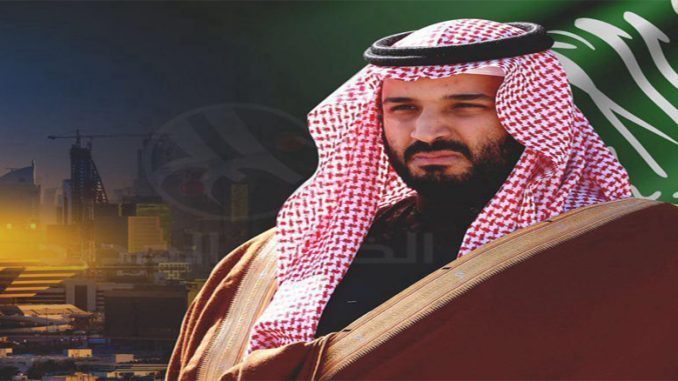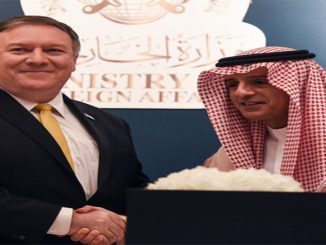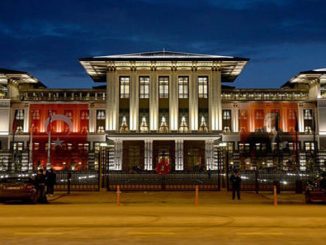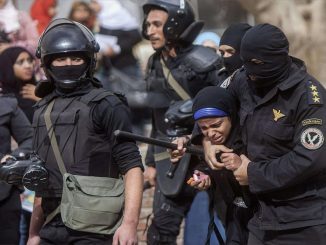
European Commission broadens list of nations falling short in thwarting financing of terrorism and organized crimes.
The European Commission has added seven countries including Saudi Arabia, Panama, and Nigeria to a blacklist of nations that pose a threat because of lax controls on terror financing and money laundering.
The new countries targeted by the commission on Wednesday join another 16 already on this register, bringing the total up to 23.
The commission said it added jurisdictions with “strategic deficiencies in their anti-money laundering and counter-terrorist financing frameworks”.
The move is part of a crackdown against money laundering after several scandals hit European Union banks in recent months.
But it has triggered criticism from several EU states worried about their economic relations with the listed states, notably Saudi Arabia.
“We have established the strongest anti-money laundering standards in the world, but we have to make sure that dirty money from other countries does not find its way to our financial system,” Vera Jourova, European Commissioner for Justice said in a statement.
“Dirty money is the lifeblood of organized crime and terrorism,” she added, urging countries on the list to “swiftly remedy their deficiencies”.
The 28 EU states now have one month, which can be extended to two, to endorse the list. They could reject it by qualified majority.
Jourova, who proposed the list, told a news conference in Strasbourg she was confident states would not block it.
Inclusion on the list does not trigger sanctions, but it does oblige European banks to apply tighter controls on transactions with customers and institutions in those countries.
In a statement published by Saudi Press Agency early on Thursday, Riyadh said it regretted the commission’s decision to include the kingdom on the list.
“Saudi Arabia’s commitment to combating money laundering and the financing of terrorism is a strategic priority and we will continue to develop and improve our regulatory and legislative frameworks to achieve this goal,” the statement quoted Saudi Finance Minister Mohammed al-Jadaan as saying.
‘Russia, UK missing’
Brussels also added to its list Libya, Botswana, Ghana, Samoa, the Bahamas and the four United States territories of American Samoa, US Virgin Islands, Puerto Rico and Guam.
The other listed states are Afghanistan, North Korea, Ethiopia, Iran, Iraq, Pakistan, Sri Lanka, Syria, Trinidad and Tobago, Tunisia and Yemen.
Bosnia Herzegovina, Guyana, Laos, Uganda and Vanuatu were removed.
Despite pressure to exclude Riyadh from the list, the commission decided to list the kingdom, confirming a Reuters report in January.
The move comes as tensions between Riyadh and European capitals are heightened over the murder last year of the columnist Jamal Khashoggi at the Saudi consulate in Istanbul.
The Saudi government media office did not immediately respond to a request for comment by the Reuters news agency.
Critics said the list fell short of including several countries that have been involved in money-laundering scandals in Europe.
“Some of the biggest dirty-money washing machines are still missing. These include Russia, the City of London and its offshore territories as well as Azerbaijan,” said EU green legislator Sven Giegold, who sits in the European Parliament special committee on financial crimes.
MEP Eva Joly, a former investigating judge, welcomed the new list but suggested the commission “publish the country assessments in order to increase the transparency of the process and avoid accusations of political bargaining”.
European countries such as Cyprus or the UK should also be on the list, she said.
Panama said it should be removed from the list because it recently adopted stronger rules against money laundering.
Jourova said the commission will continue closely monitoring other jurisdictions not yet listed, including the US and Russia.
The EU list is larger than that compiled by the Financial Action Task Force (FATF), a global body, which currently includes 12 jurisdictions – all on the EU blacklist – but excludes Saudi Arabia, Panama and US territories. The FATF will update its list next week.
What does this mean?
The European Commission confirmed it intends to put Saudi Arabia on its updated list of high-risk jurisdictions for money laundering and terrorist financing.
Other countries including Pakistan, Libya and Panama have also been added to the list, which the European Parliament is expected to ratify within one month.
Financial institutions in European Union member states will now have to commit to greater levels of scrutiny for transactions involving high-risk countries, including faster access for law enforcement agencies undertaking counterterrorism investigations.
After a string of high-profile scandals involving EU-affiliated financial institutions and international accounts, the EC is acting.
Sven Giegold MEP told Al Jazeera “it’s a sign of European self-confidence … the EU will insist on imposing its standards”.
The effect on Riyadh is likely to be three-fold. First is the threat to investment from EU-related financial institutions, who had been targeted by Crown Prince Mohammed bin Salman (MBS) as part of his Vision 2030 reform package.
Second is the public relations damage from alleged links between Saudi Arabia and alleged armed groups including Islamic States of Iraq and the Levant (ISIL, ISIS) and al-Qaeda. The EC is adamant that it has reason to believe Saudi Arabian individuals or financial institutions are at high risk of being used in money laundering or financing terrorism. These new measures bring the prospect of uncomfortable ties between Saudi Arabian entities and organisations accused of terrorism.
Thirdly, Saudi citizens around the world account for the second-largest remittances market on earth, valued at $37bn in 2017. Citizens using EU-regulated financial institutions can expect greater scrutiny of their accounts, with transfers potentially being delayed or disrupted.
Saudi-EU relations
Saudi Arabia’s inclusion on the list of high-risk countries marks a definite shift in its relationship with the EU.
“Europe was simply not serious when it came to ML [money laundering] and TF [terror financing], this is now changing,” said Giegold.
He said the decision to include Saudi Arabia is proof the EU is moving away from politically dominated decision-making to one based on facts, though he argued more must be done.
“It’s troubling that Dubai is not there,” he said, adding “there are 31 other countries still being evaluated; Dubai, Russia, Azerbaijan and others”.
Wednesday’s announcement sets a new course and will further threaten the development of the crown prince’s reform agenda.
Prince’s vision
Vision 2030 began in 2016 as a programme to diversify the Saudi economy and encourage private investment. But foreign direct investment in the kingdom declined sharply in 2017 and investor confidence was further battered by the murder of Saudi writer Jamal Khashoggi last autumn. The prospect of dealing with a country on the EC’s list could become a further deterrent to investors.
The EU has been more vocal than the United States or individual EU member states in its criticism of Riyadh. The inclusion of Saudi Arabia on the list also reflects years of difficult questions from European voters about the challenges posed by international terrorist financing. Repeatedly the aftermath of attacks in Europe has seen law enforcement agencies’ work hampered by poor data sharing.
The list has been drawn up using a new assessment model that the EC describes as “the strongest anti-money laundering standards in the world”.
“Europe cannot be a laundromat for dirty money which sponsors crime and terrorism,” said Vera Jourova, European Commissioner for Justice, on Wednesday.
Officially the kingdom’s anti-money laundering and terrorism funding efforts are coordinated by a committee whose membership involves several government ministries and agencies. The Saudi government does not publicize the findings of its own risk assessments, as many other countries do.
Countries can also be removed from the list and Jourova indirectly addressed Wednesday’s additions, saying “this is an invitation to address your weakness”.
Whether Saudi Arabia will answer the call remains to be seen, though Giegold was sanguine about the need for progress. “It doesn’t make the relationship easier, but it is necessary.”



